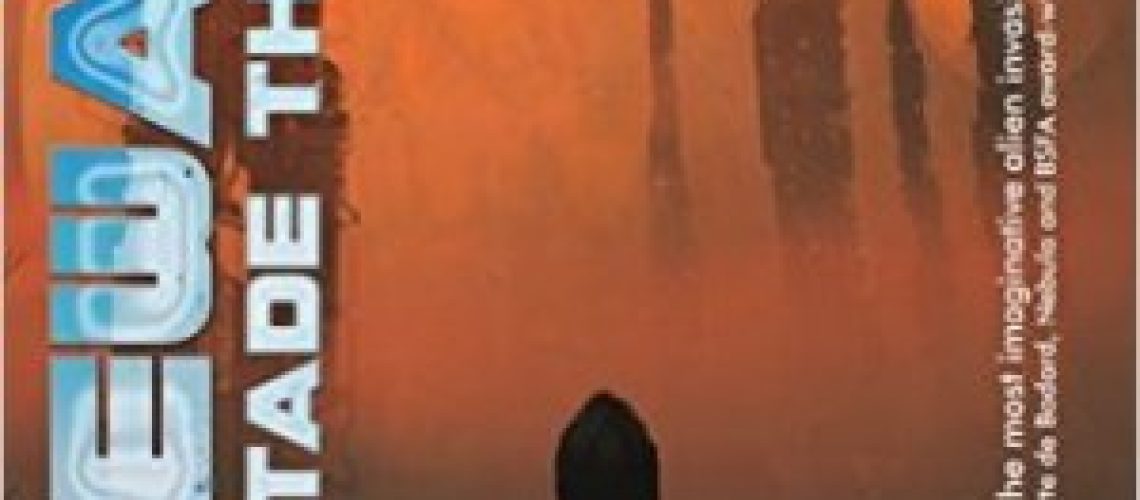In the mid-21st century, the year 2066 to be precise, Kaaro has a number of jobs and ways to make ends meet in the conglomeration of humanity known as Rosewater, located in Nigeria. From foiling Nigerian bank scams to finding people and things, Kaaro’s unusual psionic abilities, his connection to the so called xenosphere, are a mixed blessing to be sure, but they are also a way to make ends meet. It is a living, for better and worse. Rosewater, too, is much like that, a welter of humanity that lives around the alien domed structure known as Utopicity. Every so often the dome opens, and people who are near the dome when it happens can be cured of their ailments, diseases and problems. This is, for better and worse, not always a smooth process for those chosen to be healed.
Over a variety of time frames, we piece together not only Kaaro’s story, but the story of Rosewater as well, Kaaro’s crucial role in the creation of the alien dome, and the community around it. And we slowly get to unfold what its future, and the future of Kaaro, too, will be.

Rosewater is a novel by Tade Thompson.
The novel drops readers into the deep end, giving that variety of time frames, with interludes, to let readers sort out Kaaro as a character, as well as the 21st-century African world that he inhabits. The novel switches between various time frames, going back to his childhood in the 2030s and 2040s, as well as key events between then and now. There is a high level of care that the author takes in withholding information or letting the reader guess and deduce things about the world, to finally confirm and clarify such speculations in a scene set in one of the prior scenes. The novel rewards very careful reading and reflection in order to tease out details, intimations, and aspects of its worldbuilding. The nature of the aliens, the history of this 21st century, and how and why Rosewater came to be all spools out, making for a rich tapestry of a world to be immersed in, and to learn to understand.
This teasing out of information also goes to the protagonist, Kaaro, as well, and some of the characters he deals with over the years. From knowing zero about Kaaro, we slowly and carefully piece together his history with the fragmented narrative. Just as with the worldbuilding, the questions I had about Kaaro — his background, his relationships, and his history — are slowly and carefully answered. The mysteries of the world and the character enrich the narrative. It also does make revealing some of these secrets and aspects to the novel tricky in a review: The true nature and origin of the aliens. Where Kaaro’s psychic powers really come from. What the acquisition of those powers means for Kaaro’s future. Just what his true connection to the aliens really is. All this and more await readers. It’s difficult to talk about many aspects of this novel without spoiling it, because the discovery process is one of the joys of the novel. Know that it’s exceedingly well written, and it spools out for the reader like a beautiful sunrise, illuminating the reader as a rising sun reveals the landscape.
I like to think of Rosewater in the same breath and same mindset as Nnedi Okorafor’s fabulous first contact novel, Lagoon. Both feature an African setting and protagonists, and firmly immerse the reader into cultures, societies and landscapes that for a lot of western readers, is not entirely familiar, or at an angle to what they are used to. Alien contact with the natives, ranging from the ground level to the governmental level, is necessarily different than a first contact in Rome, London, or New York City. Thompson’s novel, with its hopping around the timeline, is not that first contact that Lagoon has going for it. The alien contact HAS happened, and the world, especially the local environment, is long since accustomed to having dealt with it.
It’s quite the high wire act that Thompson has going in Rosewater, and he manages not to slip off that high wire. Rosewater was more than just a way for me to broaden my science fiction and my reading to cultures, places and ideas that are beyond the typical. It was, at its base, a way for me to read some excellent science fiction.







